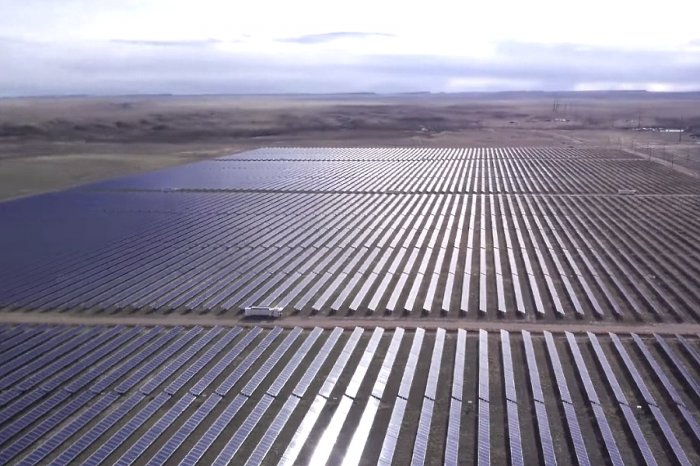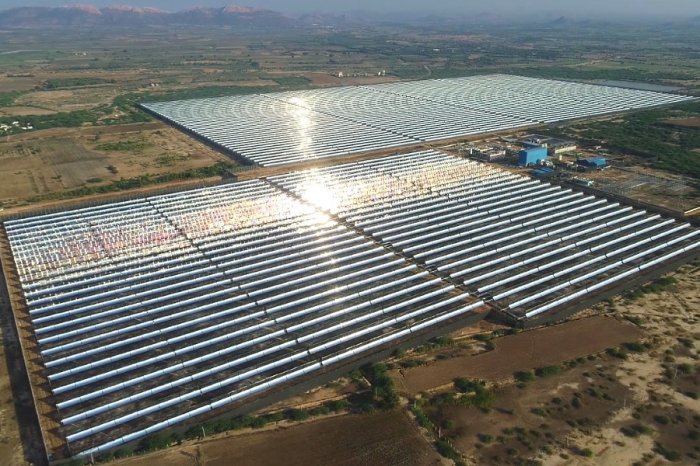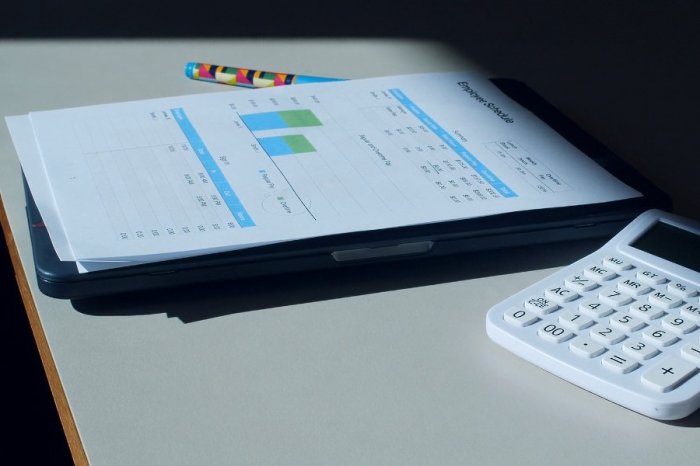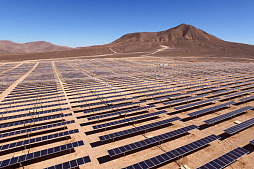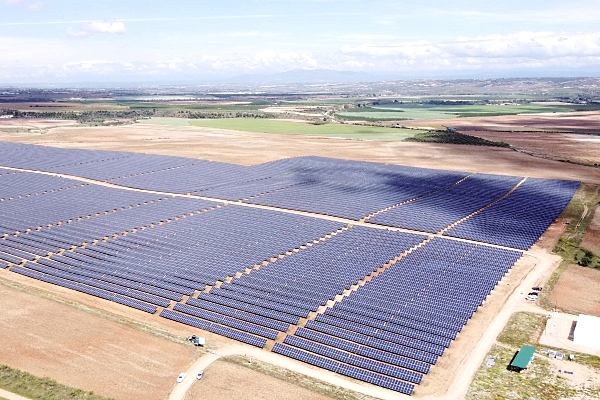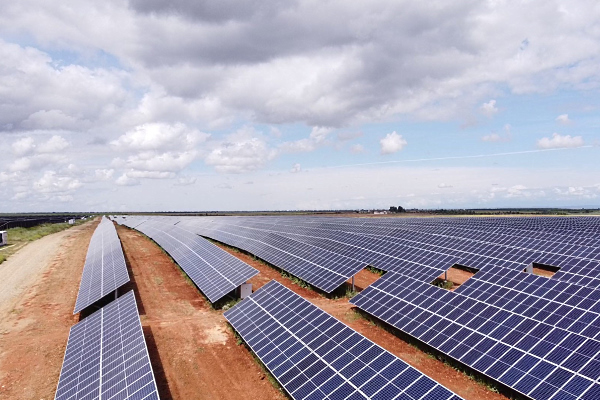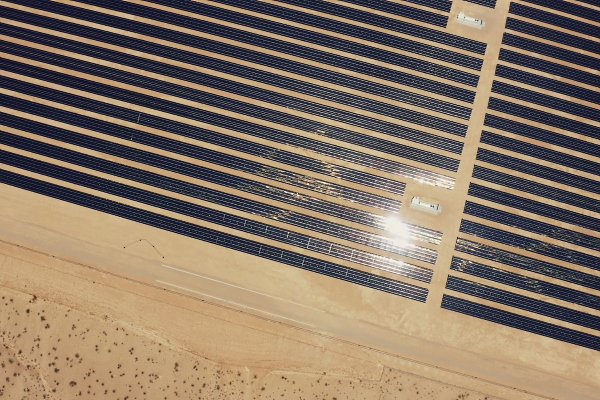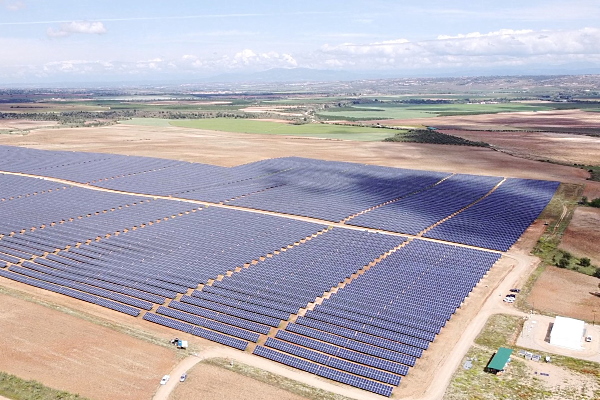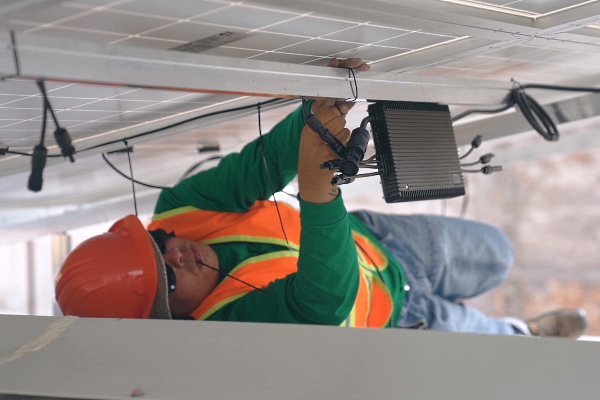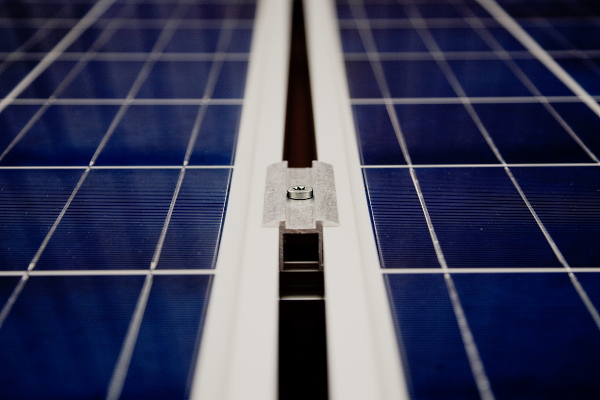To consider an application for financing, fill out the form and send it to us by e-mail along with the project brief, or contact our experts
Quite a significant decrease in the cost of generating electricity using solar energy, which has been observed over the past two decades, has created favorable conditions for the construction of large solar power plants in the United States.
Solar systems come in all sizes, ranging from small-scale PV systems to giant multi-megawatt projects using computerized tracking systems.
All these investment projects have one thing in common: they are the embodiment of the hope of people that one day the whole world will be supplied with energy from renewable sources.
LBFL, a company, offers financing and construction of solar power plants in the United States under an EPC contract (“turnkey”).
Together with partners, we build and maintain large energy facilities around the world, helping investors bring the most incredible projects to life.
Engineers solve complex problems every day.
They have to find the best ways to transport equipment to remote corners of the desert in North Africa or off-road jungle in Central America.
They have to develop sophisticated equipment to efficiently and reliably operate solar power plants in extreme conditions with minimal maintenance. They have to do whatever it takes to ensure the fastest return on your investment.
They are always ready for new challenges.
The cost of building solar power plants in the United States is decreasing every year.
We understand the desire of our clients to save money in difficult times, therefore we are always ready to offer individual solutions to reduce the cost of the project without compromising quality and efficiency.
Rich international experience, advanced European technologies, professional project management and individual approach allow our customers to receive projects that best meet their needs.
The demand for solar contractor services in the United States is growing: EPC contracting
The US solar energy sector is one of the largest in the world.At the beginning of 2017, the United States exceeded 40 GW of installed PV capacity, second only to the PRC in this indicator.
By April 2019, solar power in the United States had reached 67 GW. Solar installations supplied 12.7 million homes with electricity. In the first quarter of 2019, solar accounted for more than half (51%) of all new generating capacity installed in the United States.
In mid-2020, the solar energy sector experienced a crisis caused by the covid-19 pandemic and a slowdown in the economy. However, investors remain optimistic about the future of the sector.
Thanks to government support since the late 2000s, more than 30 states are building solar power plants in the US. In addition, the production of photovoltaic cells increased 35-fold between 2010 and 2019. Despite the impressive numbers, photovoltaics provided only 2.5% of the national electricity production in 2019.
This is a modest result compared to China (8.6%) and EU (4.9%).
The table below shows the change in the levelized cost of electricity (LCOE) for solar power plants and other sources of electricity in the United States in recent years, $ / MWh.
| Power plant | Average LCOE, $ / MWh | ||||
| 2016 | 2017 | 2018 | 2019 | 2020 | |
| Solar | 83,48 | 56,90 | 50,56 | 48,62 | 48,93 |
| Nuclear | 117,20 | 117,16 | 117,12 | 117,08 | 117,04 |
| NGCC | 51,21 | 51,73 | 51,96 | 52,26 | 52,71 |
| Coal | 96,41 | 96,10 | 95,96 | 95,81 | 95,69 |
The United States has a number of very successful EPC companies in utility scale power generation industry such as First Solar or SolarCity.
There are also famous foreign engineering companies that are involved in the “turnkey” construction of large solar power plants and small-scale systems.
Solar Star, one of the largest solar power plants in the world with an installed capacity of 579 MW, is located in California. The United States ranks among the leading global solar energy producers with several large projects in the southwest of the country.
American companies and scientific institutions have carried out many important studies early in the development of photovoltaic and concentrated solar energy, laying the foundation for the growth of this sector around the world.
While the US does not have a national energy policy, many states have set individual targets for renewable energy, including solar power in varying proportions.
The construction of new multi-megawatt projects is planned for the coming years.
Shale gas, which has been actively produced by American companies in recent years, is unlikely to slow the US transition to renewable energy sources. According to the Rocky Mountain Institute, by 2035 gas-fired power plants will be replaced by renewable energy sources. In the coming decades, using gas to generate electricity will become unprofitable.
By 2035, 90% of gas-fired power plants planned to be built in the United States will be more expensive to operate than new wind and solar power plants equipped with energy storage systems. Scientists warn that the process will be rapid.
Perhaps the owners of gas-fired power plants will not be able to recoup the costs of their construction when these capacities turn out to be unprofitable.
This will lead to a revolution in the American energy industry, where gas-fired power plants today account for up to 35% of all electricity produced. Hydraulic fracturing has made natural gas cheap, leading to the closure of dozens of coal-fired power plants.
Shale gas remains a popular fuel in the US, but investors shouldn't forget about solar energy.
The advantages of an EPC contract in solar energy sector: “turnkey” engineering
An EPC contract includes a comprehensive design, procurement, manufacturing, construction and commissioning service provided by a single professional contractor.In solar energy sector, this type of contract avoids additional costs, maximizes results and contributes to long-term business success.
Typically, the services of an EPC contractor include engineering design of equipment, procurement of components and materials, construction and installation, including with the help of responsible subcontractors.
Commissioning can be included in an EPC contract with detailed planning at an early stage. Highly qualified contractor staff will help the customer to master the new equipment.
The main advantage of the EPC contract is that the customer receives the facility exactly on time and at a price agreed in advance. The contractor is fully responsible for the timely commissioning of solar power plant and its full compliance with the technical parameters specified in the contract.
The engineering company coordinates all work until the completion of the construction of the solar power plant and its commissioning.
Turnkey solar project advantages:
• Convenience: interaction with a single contractor greatly facilitates construction control for small customers who cannot allocate trained specialists for this purpose.
• Reliability: experienced technical team of the EPC contractor guarantees high quality work, ensuring high efficiency, reliability and long life of the facility.
• Reducing financial risks: the amount of investment is known in advance, so the client will not face an unexpected increase in the cost of work.
• Time of completion: The date for putting the power plant into operation has been agreed from the very beginning, so that the customer can fulfill his obligations to other partners.
EPC projects include all the activities that are necessary for the implementation of the project:
Planning and engineering
At this stage, conceptual, basic and detailed design is carried out, which allows the project to be optimized technically and economically.This stage includes:
• Obtaining permits and licenses.
• Feasibility studies and risk assessment.
• Planning the supply chain, timing and operations to be carried out within the project.
• Basic and detailed design with a focus on solar plant operation, efficiency, safety and environmental protection.
• Carrying out the necessary technical studies.
• Equipment development.
Procurement and supply
The global procurement system allows efficient management of human resources, materials and equipment in EPC projects.Together with our partners, we cooperate with the world's leading manufacturers of solar panels, transformers and other equipment, guaranteeing our customers the best choice at competitive prices.
Procurement and supply services include:
• General consulting services on conditions, financial and regulatory requirements.
• Supplier selection and approval services, as well as their assessment and quality assurance.
• Search for materials and equipment that meet the specific requirements of the project.
Solar power plant construction: EPC contractors
This is the most difficult and responsible part of the work, requiring well-coordinated work of numerous departments of the company to ensure proper quality and meeting deadlines.Construction stages include:
• Site preparation.
• Construction of access roads.
• Installation of frames for solar panels.
• Construction of management and service buildings.
• Installation of solar panels and cable laying.
• Construction of a transformer substation.
• Construction of power lines.
• Construction site cleaning.
• Environmental protection measures.
Engaging subcontractors at this stage requires careful supervision, quality control and coordination of work.
At the time of delivery to the customer, the solar power plant must meet all the technical, economic and legal requirements that are specified in the contract.
Choosing our company as a single EPC contractor gives the customer many guarantees and benefits. In particular, we will be responsible for ensuring safety standards during construction. In addition, our specialists ensure that the work schedule is adhered to, controlling the quality of work from drawings to the finished power plant.
Having an EPC contractor in the United States makes it easier to import materials from other countries.
The construction of solar power plants often involves the supply of electrical equipment and a number of components from India, China and other countries.
There are a number of requirements for legal imports into the United States:
• The company may need a license.
• Depending on the type of product being imported, the company may need special permission from the authorities.
• Import is associated with taxes and other costs, which are the responsibility of the buyer.
The responsible EPC contractor takes care of all these concerns, ensuring that procedures are followed and that the authorities' requirements are met.
Construction of solar power plants in the USA under an EPC contract
Our team acts as an EPC contractor for renewable energy projects throughout the United States.Cooperating with LBFL, the customer receives a full range of services, which includes project financing and development, engineering design, construction and installation, maintenance and repair, modernization and expansion of solar power plants.
Our team guarantees full technical and legal support of projects.
Specialists have many years of experience in this area. The company has its own channels for the supply of all the necessary materials and equipment.
This ensures high-quality and timely implementation of ambitious projects on favorable terms.
Key benefits for American partners:
• Long-term and successful practical experience in the construction of solar power plants.
• Modern equipment from the world's leading manufacturers.
• Highly qualified certified specialists from various fields.
• Individual approach, taking into account the wishes of the customer.
• Professional project management.
All departments of the company closely interact with each other.
The work of experienced managers is backed up by successful technical solutions of a team of professional engineers. This allows our clients to implement the most complex projects in a short period of time.
All processes are supported by the necessary licenses and permissions.
Our company applies innovative approaches to project management and develops unique engineering solutions to best meet customer expectations.
It is important for us to work in the field of solar energy, because it is not only a sustainable way of producing energy, but also a key driver for the development of the economy.
The construction of solar power plants under the EPC contract (“turnkey”) includes:
• Planning: detailed study of customer requirements, analysis of the natural features of the land, geotechnical surveys, etc.
• Approval of project parameters: list of equipment, specifications, stages and deadlines.
• Preparation of a commercial proposal and signing of a contract.
• Development of a package of detailed technical documentation.
• Obtaining the necessary permits to start construction.
• Purchase and delivery of equipment and building materials.
• Installation and construction works at the facility.
• Connecting the solar power plant to the power grid.
• Commissioning and monitoring.
• Maintenance of an operating facility.
We guarantee full support of projects from the very beginning, following the principle of an all-in-one solar energy provider.
To find out more about financing and building solar power plants in the USA under an EPC contract, contact us.




